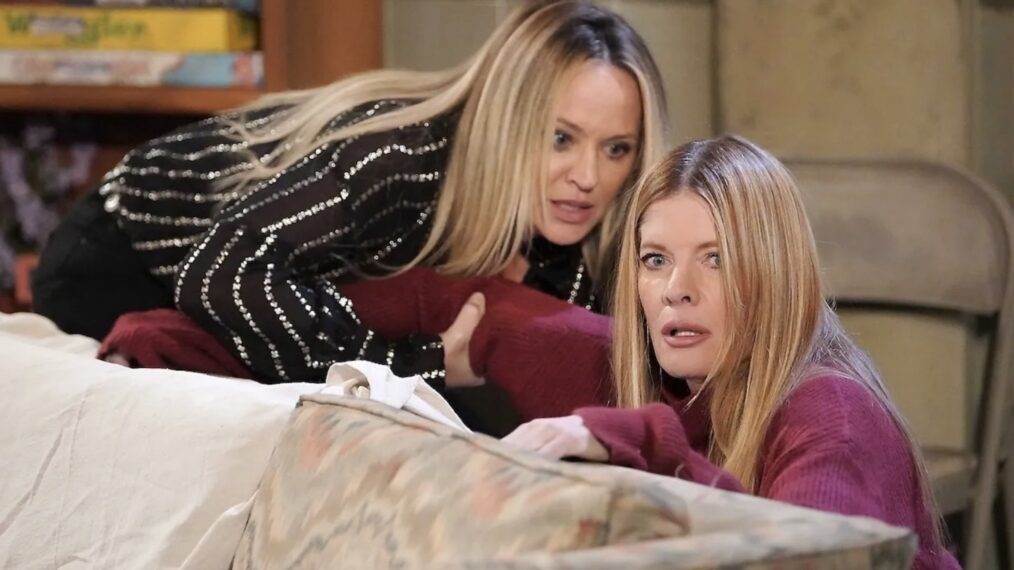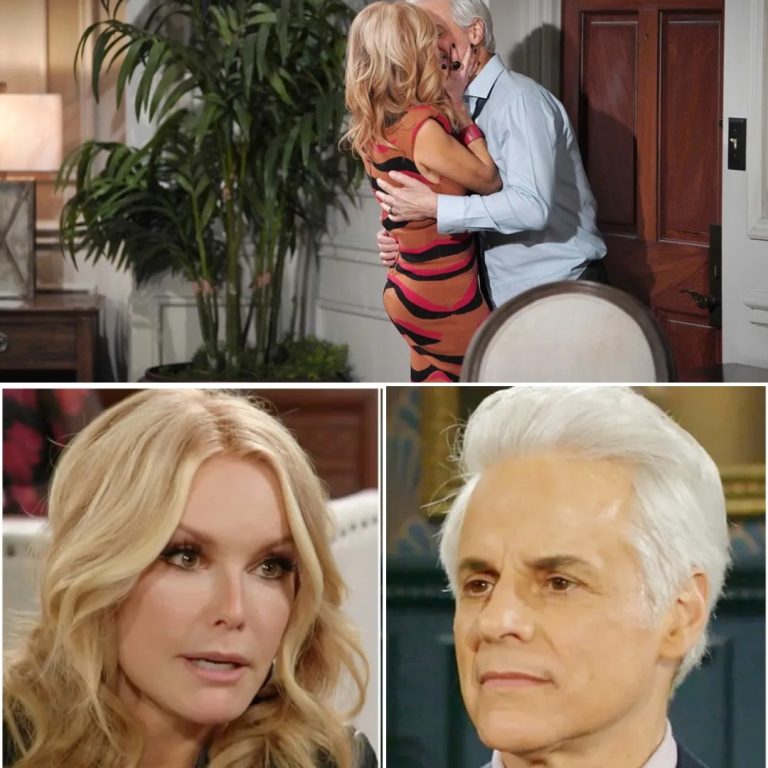
If you’ve been watching The Young and the Restless, you know that Phyllis Summers is a force to be reckoned with. The character, portrayed by Michelle Stafford, is infamous for her fiery temper, fierce loyalty, and relentless pursuit of justice. But behind the screen, Stafford’s portrayal of Phyllis’ fury stems from a real-life tragedy that adds incredible depth and authenticity to her performance.
The story behind this anger is as personal as it gets, and it makes Phyllis’ emotional journey on the show all the more compelling.

Phyllis’s Rage: A Mirror of Real-Life Grief and Injustice
Phyllis’s current vendetta against Sharon Newman on Y&R has left viewers on the edge of their seats. Phyllis believes Sharon’s actions have wronged her family in the most unforgivable way.
But what viewers don’t know is that Michelle Stafford is drawing on a painful chapter from her personal life to bring Phyllis’ outrage to life.
In a revealing interview, Stafford shared that her performance was influenced by a devastating tragedy involving a close friend. “I have a friend whose son was killed by a hit-and-run driver,” Stafford said, describing how the grief and fury she felt for her friend mirrored Phyllis’s feelings on the show.
The hit-and-run driver, with a long history of DUIs and criminal behavior, went to great lengths to hide the crime. The pain of the situation was palpable, and Stafford channeled that raw emotion into her portrayal of Phyllis.
The Unforgivable: Turning Personal Loss into a Powerful Performance
The tragedy Stafford describes is not just about loss—it’s about the unrelenting sense of injustice that comes with it.
Her friend’s son was killed, and the driver responsible had a history of reckless behavior but had somehow escaped justice for far too long. This sense of being wronged without recourse is something Stafford knows all too well and has poured it into her role as Phyllis.
Phyllis’s relentless pursuit of Sharon—her belief that Sharon’s deceit has put her family in jeopardy—echoes the deep sense of unfairness Stafford’s friend has felt since the tragic loss.
“It’s so unjust,” Stafford said, reflecting on the pain of watching someone close go through such an experience. The power of this emotion brings Phyllis’s anger and her need for justice to the forefront in a way that feels deeply personal.

Real Life Meets Fiction: The Line Between Actor and Character Blurs
Stafford’s ability to channel this personal grief into her performance makes Phyllis’s storyline all the more impactful.
In many ways, Phyllis’s fury isn’t just about her fictional family—it’s about Stafford’s real emotional journey, too. For the actress, it’s not just acting; it’s using her experiences to honor those who’ve suffered real-world tragedies. By channeling these feelings, she’s able to present Phyllis as not just a character, but a woman who is truly struggling with the overwhelming weight of injustice.
This raw emotion shines through on screen, offering fans a level of authenticity that many can relate to. As Phyllis deals with the fallout of Sharon’s actions, Stafford’s real-life experiences with grief and seeking justice only add layers to the performance. This complexity makes Phyllis’s journey about much more than the drama unfolding on screen—it’s a story of emotional depth, struggle, and a fight for what’s right.
Turning Pain into Purpose: How Stafford Honors Her Friend’s Loss
For Stafford, turning grief into a powerful artistic expression is not only cathartic, but it also serves a larger purpose. By taking her friend’s tragic experience and transforming it into something universally relatable, Stafford offers a voice to those who have experienced similar losses. She’s not just performing; she’s giving people who have felt this type of pain a sense of solidarity.
The loss and emotional turmoil her friend went through—and the eventual pursuit of justice—has inspired Stafford to become a powerful advocate for those who feel they have no voice. In the same way, Phyllis’s fight for justice becomes not just personal, but a message for all those who’ve been wronged and left without answers.

The Emotional Journey of Phyllis: More Than Just Drama
Stafford’s portrayal of Phyllis is one of the most dynamic on The Young and the Restless, and it’s all the more gripping when you realize how much of it comes from a place of genuine emotional turmoil. Phyllis’s anger isn’t just a plot device—it’s the heart of a real human struggle for justice, forgiveness, and emotional healing.
Stafford’s ability to tap into her own personal tragedy to fuel this on-screen rage shows just how deeply an actor can invest in their character.
By taking real-life grief and using it to portray a character’s fury, Stafford has created a portrayal of Phyllis that transcends typical soap opera drama. This is not just about a character being angry—it’s about understanding why that anger exists, and what it means to carry it with you.
It’s a story about transformation and redemption, and in Stafford’s hands, it’s become one of the most powerful arcs on the show.
In Conclusion: The Raw Power of Performance
Michelle Stafford’s personal tragedy has done more than inform her portrayal of Phyllis—it has given the character an emotional depth that resonates with anyone who has ever felt the weight of injustice.
By channeling real grief into her performance, Stafford not only brings authenticity to her character but also opens a door for viewers to understand the complexities of human emotion. The anger, the hurt, and the fight for justice are not just fictional elements—they’re a reflection of real pain and real people seeking resolution.
As Phyllis continues to grapple with Sharon’s actions, Stafford’s ability to transform her own heartbreak into a powerful, captivating performance reminds us all of the enduring strength of the human spirit.
This is more than just acting—it’s a reminder that, in life and on screen, we all carry our struggles, and sometimes, those struggles become the fuel for our greatest moments of strength.


